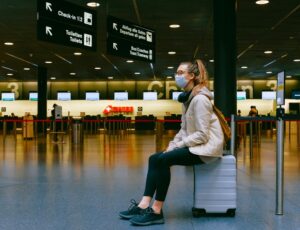 Analysts at one of the world’s most respected financial services firms have taken a close look at whether travel agents are likely to benefit from the Federal Government’s $1.2 billion support package – and the news is not good.
Analysts at one of the world’s most respected financial services firms have taken a close look at whether travel agents are likely to benefit from the Federal Government’s $1.2 billion support package – and the news is not good.
Analysts at J.P. Morgan, a global leader in financial services, examined the package aimed at the Australian tourism and aviation sectors. Their assessment: the package “will have an immaterial impact on the travel agents”.
The analysts looked at the performance of four Australian travel stocks – Flight Centre (FLT), Helloworld (HLO), Webjet (WEB) and Corporate Travel Management (CTD) immediately after the government announcement of the $1.2 billion tourism and aviation support package and they found they increased in value by a collective $540 million.
That was despite Flight Centre chief executive Graham Turner being quoted by the Australian Financial Review calling the package “pretty disappointing” and adding: “There is nothing in it for us. I don’t think it will help tourism either”.
The J.P Morgan analysts estimated that even if FLT (being the largest local travel agent) “was the sole booking channel for all travel under this scheme”, this would have a maximum revenue benefit of $5.9 million per month, which compares to FLT’s December JobKeeper payments of $14 million.
“In reality, we believe travel agents will see a much smaller share of total benefits, with domestic airlines likely being the main beneficiaries. While stocks moved significantly, we view today’s announcement as disappointing and that it should be regarded as immaterial relative to the cessation of JobKeeper.”
The J.P. Morgan analysis comes as Australian Government officials are still working out details of an additional $130 million tranche, Round Two of the $130 million Covid-19 Consumer Travel Support Program. Seasoned industry observers feel the criteria for travel agents to qualify for a grant is too narrow and does not reflect the diversity of travel agency models and business mixes.
The criteria does not seem appreciably different to the Round One $128 million Covid-19 Consumer Travel Support Program. And not that during Round One, travel agents were receiving JobKeeper whereas this is no longer available when an agent doesn’t qualify for the Round Two Consumer Travel Support Program grant.
The J.P Morgan analysts said the key for travel agents and tourism operators in the support package was the inclusion of 800,000 half-price airfares to an initial 13 key tourism regions. Discounts will be off the average fare and will be available on airline websites from 1 April. Other measures were aimed more towards the aviation sector.
The analysts estimated the maximum theoretical value of the half-price ticket program to travel agents to be $8.4 million or $1.4 million per month. Assumptions included an average ticket price of $300, a domestic TTV margin of 7% and that 100% of bookings are performed through travel agents.
They estimated the maximum theoretical value of associated accommodation spending to travel agents to be $4.5 million per month. Assumptions included an average travel group size of 2.3 passengers, five accommodation nights at an average price of $207/night (per 2019 Austrade statistics on domestic tourism – “holidays with flights”), a hotel TTV margin of 15% and that 100% of bookings are performed through travel agents.
The Australian Federation of Travel Agents (AFTA) has asked the Federal Government to anchor the additional support (Round Two of the $130 million Covid-19 Consumer Travel Support Program) within a framework that is relevant to agency costs and promotes retention of key expertise within the sector.
AFTA Chair Tom Manwaring said:
“Our sector which relies almost entirely on international travel slammed to a shut-in February last year. Nine out of ten travel businesses have been surviving on a decline in revenue of 90% since then and most businesses have experienced at least a 70% decline.”
“Without ongoing support, our sector will be decimated, leaving Australian consumers with nowhere to turn to assist with the estimated $4 Billion in refunds from global airlines, hotels and tour operators. Collapse of our sector will also leave the country without the skill set to support the Covid minefield of travel once the international border is liberated.”
“Without tailored support we will see 8 in 10 people still working in travel out of a job, and 3 in 10 businesses having to close with a further 52% uncertain about their future. We all understand the urgency and critical nature of resolving this.”
A recent survey of AFTA members showed (1513 entity respondents) showed:
- 67% are small and medium retail leisure agencies;
- 94% are dealing with a decline in revenue of 90% (with 99% experiencing at least a 70% decline);
- 80% of the workforce of travel agents businesses are women;
- 81% of all travel businesses’ work is helping customers with COVID-impacted travel – there is still $4 billion in refunds and credits which travel agents are working to repatriate from international airlines, hotels and tour operators on behalf of Australian consumers on top of the $6 Billion already secured;
- 43% believe they are unlikely to return to profit until 2023.
Written by Peter Needham















